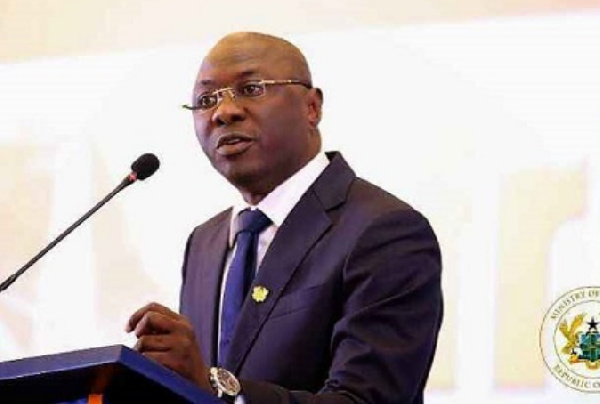The country needs an estimated $271.7 billion to achieve its target of expanding the road network from 78,401km in 2016, to 253,000 km by 2047.
The target, which was captured in the Ghana Infrastructure Plan, is also to increase paved roads to 70 per cent while linking urban areas with multi-lane carriageways and constructing long-span bridges across the Volta Lake.
The Minister of Finance, Mohammed Amin Adam, who announced this, said the targets translated into approximately $9 billion annually. Additionally, he said, $1.3 billion would be required annually for road maintenance and improvements.
Dr Amin Adam, who was speaking at a forum to discuss road financing in Accra yesterday, said GH¢10 billion, approx. ($660 million) had been invested in the road network since January 2024, with an additional planned pipeline of GH¢7.6 billion, approx. ($509 million) on the way.
Population
With the nation’s population growing at about two per cent annually, the minister said it had become more urgent to efficiently deliver public services and reliable infrastructure such as affordable and decent housing and improved transportation network.
Dr Amin Adam said the government had set out a coordinated and integrated approach to infrastructure delivery, codified in the Ghana Infrastructure Plan 2018-2047, to ensure the country got a guided framework to address the infrastructure challenges of the country.
“We have also programmed key initiatives such as the recently launched District Road Improvement Programme (DRIP) and the upcoming Economic Roads Improvement Initiative to ensure we intentionally fund roads that link pivotal productivity to enhance ventures such as agricultural enclaves and tourist sites,” he said.
However, he added that despite efforts of the government, public sector funding and initiatives alone would not bridge the gap.
Commendation
The minister commended the Ghana Highway Authority (GHA) for its unwavering commitment to delivering quality road infrastructure to support the growth agenda of the country, saying “we must overcome the habit of developing feasibility studies after feasibility studies without a clear path for implementation”.
He said the solution lay in making significant room for private-sector participation, adding that the time had come for the country to do things differently, and gave an assurance that his outfit would work to ensure investors were sufficiently supported to deliver a pipeline of “bankable” projects without cumbersome processes.
“We also want to look internally to leverage more predictable funding sources such as pension funds. I gather that pension assets under management reached almost GH¢50 billion last year,” the minister said.
In that regard, Dr Adam said: “We want to work with the regulator of pension funds to ensure we structure a regime that allows our pension funds to co-invest in commercially attractive infrastructure projects that deliver stable Returns on Investment (ROI)”.
He further said that the development of a revised framework for road and bridge tolls in 2025, for instance, was one measure to ensure that commercial risks were sufficiently mitigated to encourage more pension funds and private financing pools to participate in road and infrastructure programmes in the country.
Road projects
The Country Director of the World Bank, Robert Taliercio O’Brien, observed that Ghana had the second largest pipeline for roads in the sub-region and the 38th globally in terms of the US dollar value of all projects.
He commended the country for its efforts in that regard. “There is a lot to celebrate on the hard-fought accomplishments which is a result of sustainable leadership, capable institutions and important financing flows,” he said.
Dr O’Brien, however, said the nation was still faced with some challenges due to some macro economic challenges which had made the Roads Ministry unable to complete some ongoing road projects.
Source: Graphic.com.gh

